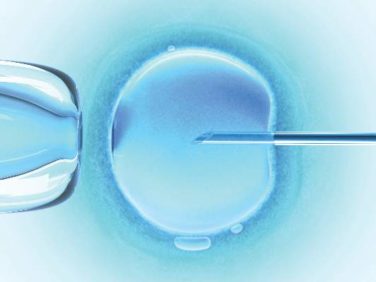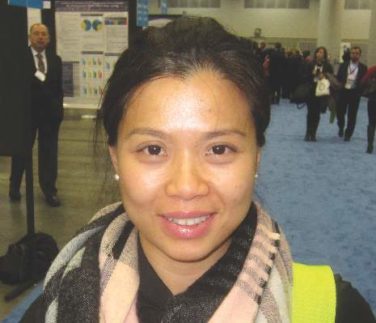AT ASH 2014
SAN FRANCISCO (FRONTLINE MEDICAL NEWS) – Autologous hematopoietic stem cell transplantation should be offered to patients with HIV-related lymphomas and treatment-responsive HIV infection, results from a new study indicate.
At 12 months post transplant, the progression-free survival rate was 82.3% and overall survival rate was 86.6%.
Moreover, overall mortality, treatment failure, disease progression, and treatment-related mortality were not statistically different between patients with HIV-related lymphoma (HRL) offered transplant and 151 controls matched for age, performance score, disease, and disease status and stage, Dr. Joseph Alvarnas reported at the annual meeting of the American Society of Hematology.
Specifically, overall survival was 86.6% in patients with HRL and 87.7% in controls (hazard ratio, 0.79; P = .56).
“Patients with treatment-responsive HIV-infection and HRL should be considered candidates for autologous stem cell transplant if they meet standard transplant criteria,” he said during a press briefing. “Finally, we would argue that exclusion from clinical trials on the basis of HIV infection alone is no longer justified.”
The risk of non-Hodgkin lymphoma (NHL) and Hodgkin lymphoma (HL) is at least 25-fold higher in patients with HIV infection than noninfected individuals. Historically these patients had poor outcomes; Dr. Alvarnas recalled that in 1985 the median survival for someone with HRL was less than 2 months.
The 1996 introduction of combination antiretroviral treatment (cART) – with its ability to profoundly suppress viral titers, recover T-cell immunity, and decrease risk of opportunistic infection – improved the prognosis for HIV-infected patients and allowed oncologists to provide standard antilymphoma therapies to patients with HRL.
Autologous hematopoietic stem cell transplantation (AHCT) was extended to patients with relapsed/persistent HRL in the late 1990s. But even today, HIV infection is still an exclusion criteria for AHCT trials and transplant remains limited to centers with HIV-specific expertise, Dr. Alvarnas of City of Hope National Medical Center, Duarte, Calif., said.
“It is a true statement that in many centers HIV positivity is exclusionary for receiving stem cell transplant, which is the only potentially curative strategy for the patient population that was studied today,” briefing moderator Dr. Brad Kahl, from the University of Wisconsin–Madison, commented. “I think the data you saw today will change standard practice at centers that currently exclude HIV-positive patients. So I think that the impact of that is large.”
The phase II trial involved 43 patients with treatable HIV-1 infection and chemotherapy-sensitive, relapsed/refractory aggressive NHL and HL who received AHCT on day 0, using the modified BEAM regimen (carmustine 300 mg/m2 (day –6), etoposide 100 mg/m2 twice-daily (days –5 to –2), cytarabine 100 mg/m2 (days –5 to –2), melphalan 140 mg/m2 (day –1). Standard supportive care was given through discharge. Antiretroviral therapy was withheld during the transplant preparative regimen and was resumed after nausea and vomiting resolved. Three patients did not undergo transplant due to lymphoma progression and were not included in the analysis.
Before transplant, HIV viral load was undetectable in 31 patients and detectable in 9 (median viral load 84 copies/mL). Median CD4 count was 250.5/mcL.
Among 39 patients evaluable at day 100 post transplant, 36 were in complete remission, one was in partial remission, and two had relapsed, Dr. Alvarnas reported.
Within 1 year of transplant, three patients died from recurrent/persistent disease, one from cardiac arrest, and one from invasive fungal infection. The cumulative incidence of treatment-related mortality was 5%.
By 1 year, 13 patients experienced grade 3 adverse events and 2 patients had grade 4 toxicities (one with mucositis and one with dyspnea/hypoxia/cardiac arrhythmia/hypotension). In all, 17 patients developed 42 episodes of infection, 9 of which were severe.
The study was funded by the National Heart, Lung, and Blood Institute, National Cancer Institute, and AIDS Malignancy Consortium. The authors reported no relevant financial disclosures. Dr. Kahl reported relationships with numerous drug companies.




